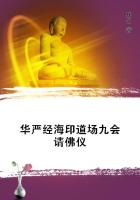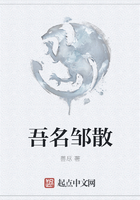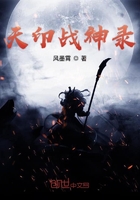"Yes, I will do that, too, " said the Wise Man. So he buried in the earth the jar of gold and the jar of silver that he had brought with him, and then he stamped the mould down upon it.
After that the Wise Man began his life all over again. He bought, and he sold, and he traded, and by-and-by he became rich. Then he built himself a great house, and in the foundation he laid the jar in which the Demon was bottled.
Then he married a young and handsome wife. By-and-by the wife bore him a son, and then she died.
This son was the pride of his father's heart; but he was as vain and foolish as his father was wise, so that all men called him Aben Hassen the Fool, as they called the father Aben Hassen the Wise.
Then one day death came and called the old man, and he left his son all that belonged to him--even the Talisman of Solomon.
Young Aben Hassen the Fool had never seen so much money as now belonged to him. It seemed to him that there was nothing in the world he could not enjoy. He found friends by the dozens and scores, and everybody seemed to be very fond of him.
He asked no questions of the Talisman of Solomon, for to his mind there was no need of being both wise and rich. So he began enjoying himself with his new friends. Day and night there was feasting and drinking and singing and dancing and merry****** and carousing; and the money that the old man had made by trading and wise living poured out like water through a sieve.
Then, one day came an end to all this junketing, and nothing remained to the young spend-thrift of all the wealth that his father had left him. Then the officers of the law came down upon him and seized all that was left of the fine things, and his fair-weather friends flew away from his troubles like flies from vinegar. Then the young man began to think of the Talisman of Wisdom. For it was with him as it is with so many of us: When folly has emptied the platter, wisdom is called in to pick the bones.
"Tell me," said the young man to the Talisman of Solomon, "what shall I do, now that everything is gone?"
"Go," said the Talisman of Solomon, "and work as thy father has worked before thee. Advise with me and become prosperous and contended, but do not go dig under the cherry-tree in the garden."
"Why should I not dig under the cherry-tree in the garden?" says the young man; "I will see what is there, at any rate."
So he straightway took a spade and went out into the garden, where the Talisman had told him not to go. He dug and dug under the cherry-tree, and by-and-by his spade struck something hard.
It was a vessel of brass, and it was full of silver money. Upon the lid of the vessel were these words, engraved in the handwriting of the old man who had died:
"My son, this vessel full of silver has been brought from the treasure-house of the ancient kings of Egypt. Take this, then, that thou findest; advise with the talisman; be wise and prosper."
"And they call that the Talisman of Wisdom," said the young man.
"If I had listened to it I never would have found this treasure."
The next day he began to spend the money he had found, and his friends soon gathered around him again.
The vessel of silver money lasted a week, and then it was all gone; not a single piece was left.
Then the young man bethought himself again of the Talisman of Solomon. "What shall I do now," said he, "to save myself from ruin?"
"Earn thy bread with honest labor," said the Talisman, "and I will teach thee how to prosper; but do not dig beneath the fig-tree that stands by the fountain in the garden."
The young man did not tarry long after he heard what the Talisman had said. He seized a spade and hurried away to the fig-tree in the garden as fast as he could run. He dug and dug, and by-and-by his spade struck something hard. It was a copper vessel, and it was filled with gold money. Upon the lid of the vessel was engraved these words in the handwriting of the old man who had gone: "My son, my son," they said, "thou hast been warned once; be warned again. The gold money in this vessel has been brought from the treasure-house of the ancient kings of Egypt. Take it; be advised by the Talisman of Solomon; be wise and prosper."
"And to think that if I had listened to the Talisman, I would never have found this," said the young man.
The gold in the vessel lasted maybe for a month of jollity and merry******, but at the end of that time there was nothing left--not a copper farthing.
"Tell me," said the young man to the Talisman, "what shall I do now?"
"Thou fool," said the Talisman, "go sweat and toil, but do not go down into the vault beneath this house. There in the vault is a red stone built into the wall. The red stone turns upon a pivot.
Behind the stone is a hollow space. As thou wouldst save thy life from peril, go not near it!"
"Hear that now," says the young man, "first, this Talisman told me not to go, and I found silver. Then it told me not to go, and I found gold; now it tells me not to go--perhaps I shall find precious stones enough for a king's ransom."
He lit a lantern and went down into the vault beneath the house.
There, as the Talisman had said, was the red stone built into the wall. He pressed the stone, and it turned upon its pivot as the Talisman had said it would turn. Within was a hollow space, as the Talisman said there would be. In the hollow space there was a casket of silver. The young man snatched it up, and his hands trembled for joy.
Upon the lid of the box were these words in the father's handwriting, written in letters as red as blood: "Fool, fool!
Thou hast been a fool once, thou hast been a fool twice; be not a fool for a third time. Restore this casket whence it was taken, and depart."
"I will see what is in the box, at any rate," said the young man.

